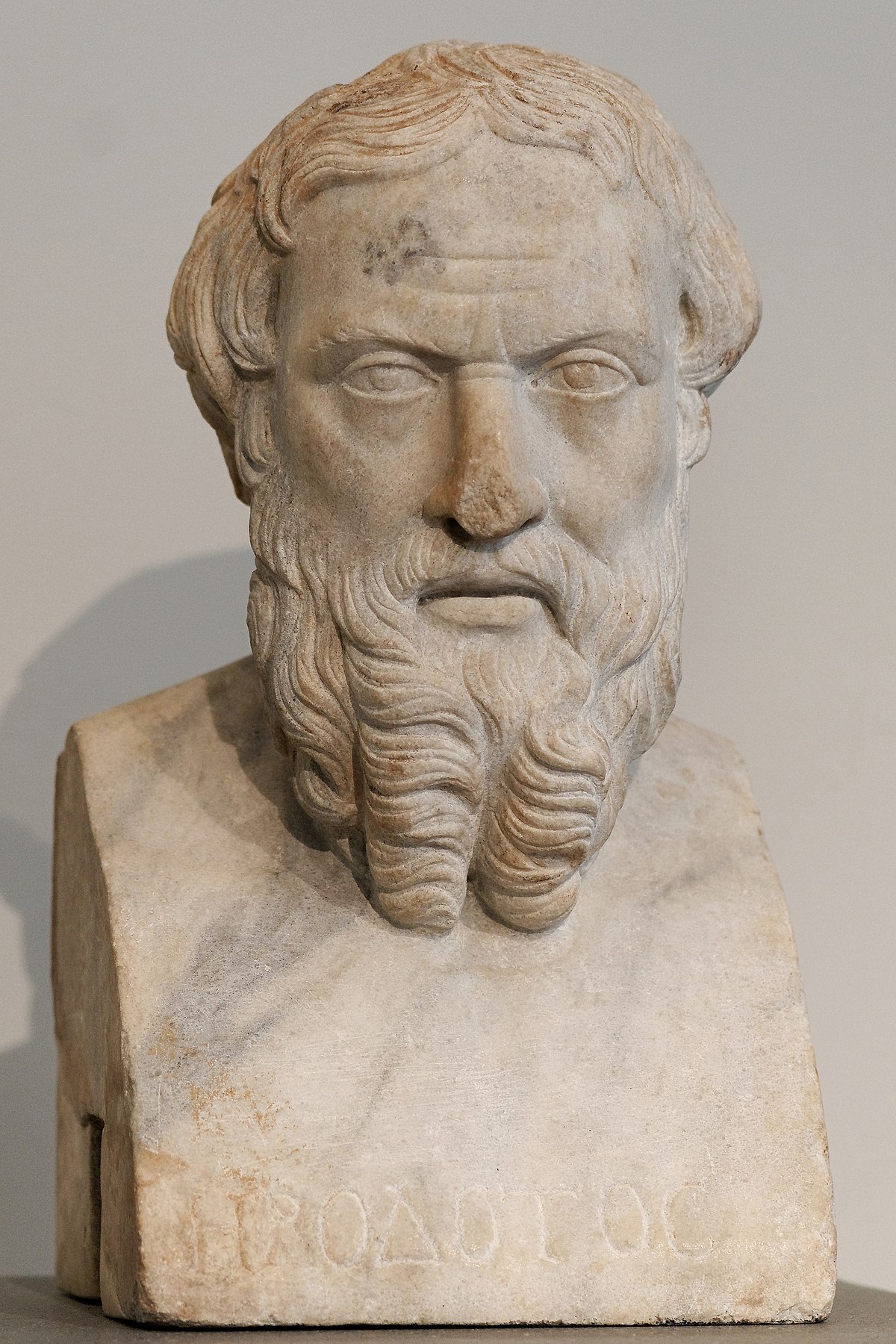Herodotus and the fall of Babylon (Jeremiah 50)
Illustration: Herodotus
The Greek historian Herodotus (ca. 480-425 B.C.) produced one of the most famous books of ancient Greece, the History. Its focus in the series of wars between Persia and the Greeks that lasted from approximately 490 to 479 B.C. Herodotus devoted a great deal of attention to the background of the wars and in the process gave a fairly sweeping view of the eastern Mediterranean world during the sixth and fifth centuries B.C.
The Greek word historiai (literally “investigations”) aptly describes how Herodotus went about collecting and recording information about customs and histories of the peoples he encountered. He is regarded as the father of western history writing because he tried to confine himself to human events and to avoid myths.
At times, however, claims from Herodotus are of questionable value. It is incorrect to assert, as some have, that Herodotus simply invented his stories. He did, however, include rumour, legend and gossip in his histories and sometimes may have misunderstood his sources.
Herodotus’ account of the fall of Babylon (History, 1, 189-191) in 539 B.C. relates to the prophetic account in Jeremiah 50-51, as well as to Daniel’s indication that Babylon fell overnight during a festival (Daniel 5:30-31). Herodotus began with a fantastic tale of how Cyrus’ horse drowned in the Gyndes River and how he to punish the river by making it weak and shallow, compelled his army to spend a summer diverting it into 360 channels. Arriving at Babylon, Cyrus faced the prospect of a prolonged siege. Babylon was large enough to store food for many years, so any attempt to starve the city into submission would have been futile.
But, Herodotus noted, the city had one peculiar characteristic: The Euphrates River rab through the middle of Babylon and divided it into two parts. Cyrus decided that the river channels under the walls provided the only chance of gaining entry, but the volume of water and the strength of the current were too great. Yet the Persian king hatched an ingenious plan: He posted soldiers at the points at which the Euphrates entered and left the city and instructed his men to move through the river when it became fordable. Meanwhile, the non-combatants went upstream and diverted much of the river into an artificial marsh. When the water level had dropped sufficiently, the Persian soldiers made their way in and captured the Babylonian capital.
What are we to make of this account? Most historians believe that Herodotus’ version of events is at least to some degree confused and misleading. In his actual conquest of Babylonia, Cyrus’ forces proceeded down from the north and rapidly overcame resistance. A second front was opened against Babylon by a certain Ugbaru, governor of Gutim. Ugbaru proceeded to capture Babylon for Cyrus with astonishing speed, and Cyrus himself entered the city shortly thereafter.
Several factors may have contributed to Persian victory. First, Cyrus may have kept the bulk of the Babylonian forces occupied with his army while Ugbaru came in from the rear. Second, the Babylonian regime was unpopular, and the people seem to have welcomed Cyrus as liberator. Third, Ugbaru appears to have entered Babylon by subterfuge (as is reflected in the version of the history about the diversion of the Euphrates).
It is certain, however, that Babylon fell suddenly. Herodotus is correct in stating that the Euphrates bisected the city, and the Nabonidus Chronicle confirms that it fell without a battle. Thus the account about diverting the Euphrates may be true. Both Daniel 5 and Herodotus indicate that Babylon fell during a rowdy festival. Herodotus stated “Owing to the sheer size of the city, so say the inhabitants, those in the outlaying areas were captured without those in the centre knowing about it”.
Daniel 5 recounts the story of Belshazzar’s feast, and can be regarded as an independent witness. Herototus, in this account as elsewhere, was colourful and not always fully reliable, but he appears to have preserved something of (and perhaps a good deal of) the true story.
